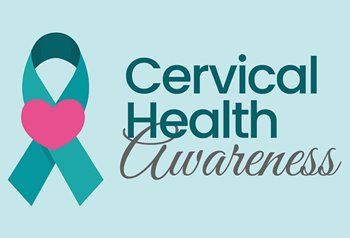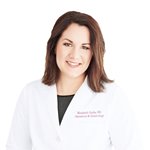 Cervical cancer is preventable, yet it is still killing thousands of women every year. In 2023, approximately 13,960 new cases of invasive cervical cancer were diagnosed and over 4,310 women died from cervical cancer in the United States alone.
Cervical cancer is preventable, yet it is still killing thousands of women every year. In 2023, approximately 13,960 new cases of invasive cervical cancer were diagnosed and over 4,310 women died from cervical cancer in the United States alone.
Cervical cancer differs greatly from many other types of cancer in that it is preventable in 93 percent of cases. Through regular screening of cervical cancers and human papillomavirus (HPV) vaccination, most forms of cervical cancer can be prevented, according to the Centers for Disease Control (CDC).
Cervical cancer screening tests
The Papanicolaou (Pap) test screens for abnormal cells that may develop into cancer and the HPV test screens for the HPV virus that causes these abnormal cells. The Pap test and HPV test are the two tests used to screen for cervical cancer. With both tests, a health professional uses a special tool to gently scrape or brush the cervix to collect cells for testing. If a pre-cancer is found it can be treated, keeping it from turning into a cervical cancer.
-
The HPV test looks for infection by high-risk types of HPV that are more likely to cause pre-cancers and cancers of the cervix.
-
The Pap test or smear is a procedure used to collect cells from the cervix so that they can be looked at closely in the lab to find cancer and pre-cancer. A Pap test can be done during a pelvic exam, but not all pelvic exams include a Pap test.
The result of the HPV test, along with your past test results, determines your risk of developing cervical cancer. If the test is positive, this could mean more follow-up visits, more tests to look for a pre-cancer or cancer, and sometimes a procedure called Loop Electrosurgical Excision Procedure (LEEP) to remove any pre-cancers (dysplasia or squamous intraepithelial lesions) that might be found.
When to start screening and how often?
The American College of Obstetrics and Gynecologists recommends that all women regardless of sexual activity status should start getting screened at age 21. How often you should have cervical cancer screening and which tests you should have depend on your age and health history:
-
Women who are 21 to 29 should have a Pap test alone every 3 years. HPV testing alone can be considered for women who are 25 to 29, but Pap tests are preferred.
-
Women who are 30 to 65 have three options for testing. They can have a Pap test and an HPV test (co-testing) every 5 years. They can have a Pap test alone every 3 years. Or they can have HPV testing alone every 5 years.
It's important to know that most invasive cervical cancers are found in women who have not had regular Pap tests. Pelvic exams help diagnose other gynecologic conditions such as ovarian cysts, fibroids, vaginal infections, prolapse and other gynecologic conditions, even after having children or menopause.
Cervical cancer prevention
In addition to regular screening, the HPV vaccine can prevent the HPV types that cause 90% of cervical cancer cases. But there are other types of HPV (not covered in the vaccine) that could cause disease according to the National Cervical Cancer Coalition.
The HPV vaccine has been available since 2006. The current version is known as Gardasil-9 and is manufactured by Merck Pharmaceuticals.
 The vaccine is available for females and males starting at age 9, now up to age 45. The age the vaccine is typically first offered is around age 11, before the onset of sexual activity, which is how most people get exposed to the HPV virus. Getting vaccinated before exposure to HPV allows the vaccines to be the most effective in thwarting future infection.
The vaccine is available for females and males starting at age 9, now up to age 45. The age the vaccine is typically first offered is around age 11, before the onset of sexual activity, which is how most people get exposed to the HPV virus. Getting vaccinated before exposure to HPV allows the vaccines to be the most effective in thwarting future infection.
If given before the age of 14 one only needs 2 doses of the vaccine. If given after age 14, then 3 doses are needed. The later age at which one can get vaccinated was raised in 2022 from age 26 up to age 45. Even if someone has tested positive to a high risk strain of the HPV virus, getting vaccinated is still recommended. The current version of the vaccine is protective against nine subtypes of high risk HPV.
Vaccinating against these nine strains of HPV also helps prevent vaginal, vulvar, anal and penile cancers and also certain head and throat/neck cancers that are caused by the HPV virus. The vaccine helps prevent against genital warts, which can be recurrent and affect both men and women. One doesn't have to have genital warts or precancerous or cancerous changes to pass the virus on, in fact, most individuals don't know they have been exposed and carry HPV; it is highly transmissible. The regular use of condoms can help but is not considered an effective way to prevent the transmission of this virus to a partner.
Spreading awareness
The percentage of women overdue for cervical cancer screening rose from 14 percent in 2004 to 23 percent in 2019, with many women reporting they did not know they needed a PAP smear or what it represented per research from the University of Texas Houston School of Public Health. The challenges presented during the following three years during the COVID-19 pandemic likely made these numbers increase or stagnate as many people have delayed routine screening during these challenging times.
 Awareness that HPV causes cancer has also declined. According to Dr. Dorene Dempster, Obstetrician/Gynecologist (OB/GYN) at Door County Medical Center, "The reason for the continued number of cases is that many women fall through the cracks. They don't get screened, fail to follow up on abnormal PAP smear tests, and many were never vaccinated. We are working hard to educate as many patients as we can, but now we are calling on our community to help get the word out."
Awareness that HPV causes cancer has also declined. According to Dr. Dorene Dempster, Obstetrician/Gynecologist (OB/GYN) at Door County Medical Center, "The reason for the continued number of cases is that many women fall through the cracks. They don't get screened, fail to follow up on abnormal PAP smear tests, and many were never vaccinated. We are working hard to educate as many patients as we can, but now we are calling on our community to help get the word out."
 "Many of the cases of cervical cancer found are diagnosed at late stages as routine screening is overdue or they have not been screened at all. One in five cervical cancers diagnosed is in a woman over 65 and more than 70% of these cases were late stages, which means more advanced disease, and lower long term survival rates. Many of these women stopped seeing their gynecologists after they were done having children or went through menopause," Dr. Elizabeth Gaida, OB/GYN at Door County Medical Center shares.
"Many of the cases of cervical cancer found are diagnosed at late stages as routine screening is overdue or they have not been screened at all. One in five cervical cancers diagnosed is in a woman over 65 and more than 70% of these cases were late stages, which means more advanced disease, and lower long term survival rates. Many of these women stopped seeing their gynecologists after they were done having children or went through menopause," Dr. Elizabeth Gaida, OB/GYN at Door County Medical Center shares.
Recent changes to screening and vaccination recommendations have led to confusion amongst lay and medical people about how often to get screened. The pap smear used to be an annual screening test, but now in low risk women (with no abnormal pap smear history, who are ideally vaccinated) and in women over 30 with negative high risk HPV testing, women are recommended to get pap smears every 3-5 years.
According to Dr. Gaida, "Women of all ages should have pelvic exams on a regular basis even if they are not getting a cervical cancer screen at the same time and even if they have had a hysterectomy."
The Women's Center at Door County Medical Center
Drs. Dorene Dempster and Elizabeth Gaida are Board Certified Obstetrician/Gynecologists at Door County Medical Center. They provide care for women of all ages through personalized care and advanced technology like minimally invasive robotic surgery and 3-D mammography. The Women's Center at Door County Medical Center, located on the Sturgeon Bay campus, was designed with your health in mind, to inspire a sense of comfort, peace and tranquility. For more information visit www.dcmedical.org/medical-services/womens-care or call the Women's Center at Door County Medical Center directly at (920) 746-3666.